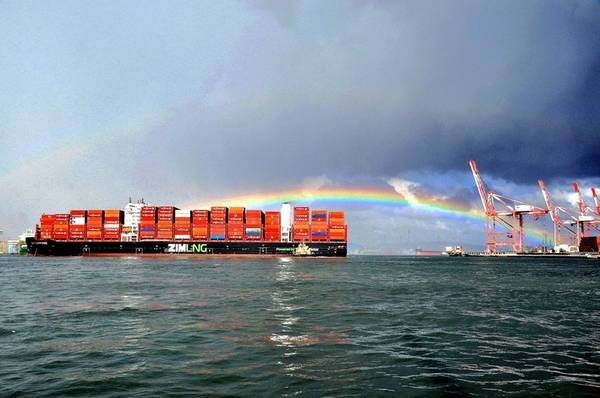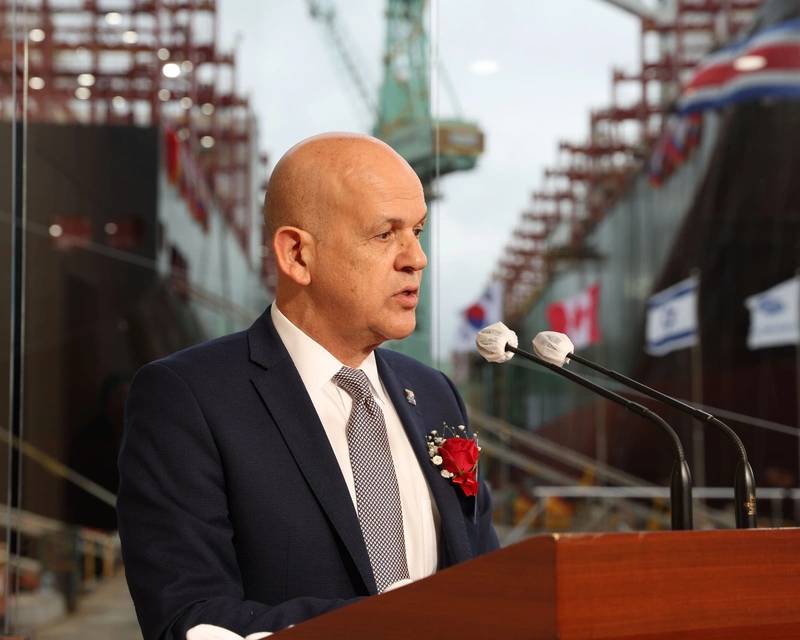
ZIM Integrated Shipping Services reported third-quarter 2025 earnings that, while sharply lower year-on-year, demonstrate the carrier’s ability to generate meaningful profit and cash flow in an increasingly volatile global container market.
Revenues fell 36% to $1.78 billion as freight rates continued to normalize from 2024 highs, and net income dropped to $123 million, compared with $1.13 billion a year ago. Still, ZIM delivered an Adjusted EBITDA of $593 million—underscoring the value of its cost-efficient, modernizing fleet and its highly tactical approach to capacity deployment.
Third-quarter carried volumes slipped 5% to 926,000 TEU, while the average freight rate per TEU fell 35% to $1,602. Operating income (EBIT) checked in at $259 million, down from $1.24 billion in Q3 2024, driven primarily by the steep contraction in rates seen across many major east-west trades. Cash generation remained robust: ZIM produced $628 million in operating cash flow during the quarter and $574 million in free cash flow.
Despite macro-pressure—including geopolitical shocks, shifting tariff regimes, and an ongoing global trade war—CEO Eli Glickman emphasized the company’s “business resilience,” crediting ZIM’s ability to rapidly reconfigure service networks, particularly in the Transpacific. He also highlighted diversification efforts and continuing momentum on fleet renewal: “With larger, more modern, cost-effective capacity, we continued to capitalize on our agile fleet deployment strategy… now facing downward pricing pressure.”
 Eli Glickman, ZIM President & CEO, said, “Our business resilience was evident in the third quarter, during which we delivered solid earnings while navigating a volatile rate environment, influenced by a complex geopolitical landscape, frequent changes in tariff policies and an ongoing global trade war. With larger, more modern, cost-effective capacity, we continued to capitalize on our agile fleet deployment strategy, which enables ZIM to respond quickly to developments in market conditions, now facing downward pricing pressure.”
Eli Glickman, ZIM President & CEO, said, “Our business resilience was evident in the third quarter, during which we delivered solid earnings while navigating a volatile rate environment, influenced by a complex geopolitical landscape, frequent changes in tariff policies and an ongoing global trade war. With larger, more modern, cost-effective capacity, we continued to capitalize on our agile fleet deployment strategy, which enables ZIM to respond quickly to developments in market conditions, now facing downward pricing pressure.”
Image courtesy ZIM
Fleet Strategy: Modern, Modular and Responsive
ZIM’s fleet transformation has been a defining theme of the past several years. The carrier’s heavy investment in chartered LNG-ready and fuel-efficient tonnage has materially lowered its slot costs and provided a buffer against freight rate erosion. The company’s net debt position improved to $2.64 billion at the end of Q3—down from $2.88 billion at year-end 2024—reflecting disciplined capital management and sustained cash generation even in a softened demand environment.
The updated fleet profile, combining high-efficiency newbuilds with strategic long-term charter arrangements, is designed to give ZIM the flexibility to pivot capacity to markets showing resilience while pulling back from weaker trades. This “modular” footprint has become a competitive differentiator as demand patterns shift more frequently and abruptly than in pre-pandemic years.
ZIM acknowledged that fourth-quarter conditions have weakened, yet the company raised the midpoint of its full-year guidance. ZIM now expects 2025 Adjusted EBITDA between $2.0–$2.2 billion and Adjusted EBIT between $700–$900 million—an improvement over prior guidance. According to the company, its differentiated commercial strategy, enhanced fleet profile, and lower cost base position ZIM to weather near-term volatility.
Although the company’s earnings and margins are far below the peaks of 2024, the new normal in container shipping continues to reward operators with strong balance sheets, efficient fleets, and agile network architectures. ZIM checks all three boxes. The carrier continues to manage complex geopolitical exposures—particularly in the Middle East—while investing in digitalization, ESG priorities, and targeted commercial partnerships.
The company also declared a Q3 dividend of $0.31 per share, reflecting its policy of distributing 30% of quarterly net income. Since its IPO in 2021, ZIM has returned approximately $5.7 billion to shareholders.



